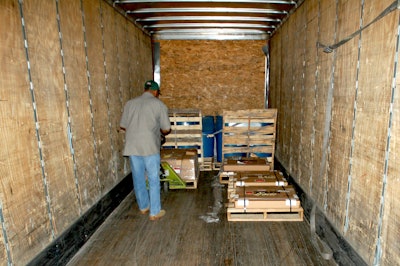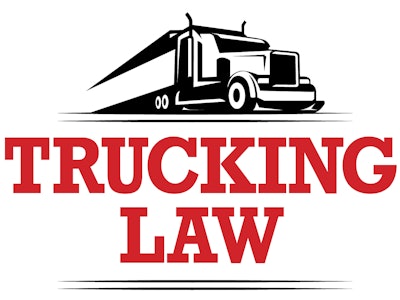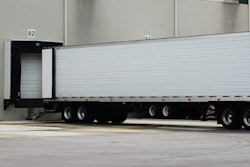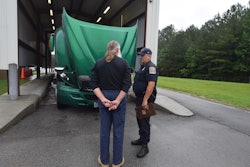 It’s a felony for a shipper or receiver to require a driver to hire a lumper without getting reimbursed.Max Heine
It’s a felony for a shipper or receiver to require a driver to hire a lumper without getting reimbursed.Max Heine
Felony criminal prosecution of drivers and carriers for violations of commercial vehicle safety laws or regulations is rare, but not as uncommon as one might think. Typically they arise after a fatal commercial vehicle crash, which leads to an investigation by law enforcement, or an FMCSA compliance review. Less frequently, prosecutions come about after a compliance review where widespread log falsification is found and management is facilitating the log falsification.
Here are some key areas where criminal penalties can come into play:
Falsification of logs (and other documents). Granted, this is much harder now that most long-haul drivers operate with electronic logging devices. But there are practices, such as choosing a false duty status or even disconnecting an ELD, that constitute log falsification.

Drivers often ask me rhetorically: Where is the crime in falsifying a logbook? The simple answer is that it’s a federal felony. And that goes for any other document required by the Federal Motor Carrier Safety Administration. The U.S. criminal code section 18 U.S.C. § 1001 says it’s a felony when any individual "makes or uses any false writing or document knowing the same to contain any materially false, fictitious, or fraudulent statement or entry." This crime is punishable by up to five years in prison.

Other violations of safety regs. Although the criminal code provides criminal penalties, the FMCSRs do not, but that doesn’t mean a loophole for truckers or carriers. Most states have provisions in their state criminal or traffic codes that make it a crime (usually a misdemeanor) to violate an FMCSR. A misdemeanor is punishable by up to 90 days confinement and fine, the amount of which is set by each state.
The out-of-service criteria have no bearing on whether a state treats a violation as a misdemeanor or not. Furthermore, for a violation typically treated as a misdemeanor, there is nothing to prevent prosecution of it as a felony under the criminal code.
I recommend that drivers simply refuse to drive in violation of any commercial vehicle safety regulation. If they do refuse to violate an FMCSR, then they have legal protection against retaliation by the carrier, and they also avoid the possibility of criminal prosecution.
Bumping weights of household goods. 49 U.S.C. Section 14912 makes it a crime to secure a fraudulent weight on a household goods shipment, punishable by up to two years in prison. If you haul household goods, make sure the product weight is accurately recorded.
Coercion in hiring a lumper. Many drivers are unaware of the lumper law (49 U.S.C. Section 14103), which prohibits a shipper or receiver from coercing a carrier into hiring and paying for someone to assist in loading or unloading. The law provides that if the shipper or receiver requires that the carrier be assisted in loading or unloading, the shipper or receiver is responsible to the truck owner or operator for the cost of the lumper.
I read the statute as allowing situations where the trucker pays the lumper and the shipper reimburses the trucker. But if a shipper or receiver requires the truck owner or operator to hire a lumper without getting reimbursed, then they have committed a felony.










